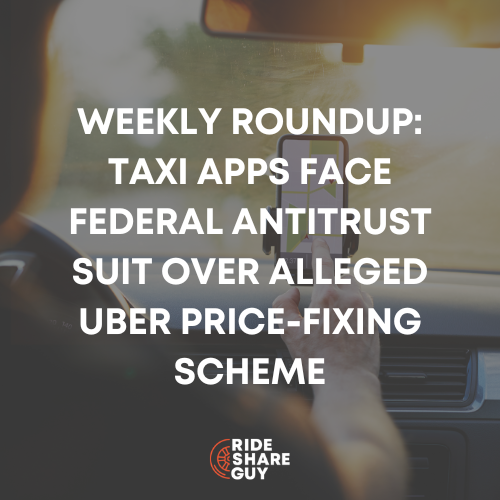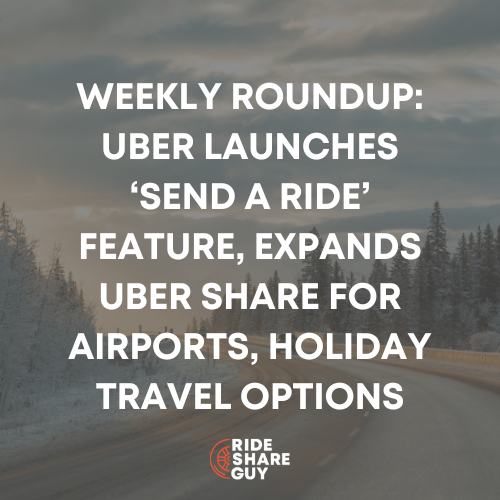In this week’s roundup, senior RSG contributor John Ince covers an op-ed in the New York Times about the Biden administration’s opportunity to turn gig workers into employees. Do you think this could happen at the national level, or will it remain on a state by state basis? That, plus more news below.
Gig Workers Are Employees. Start Treating Them That Way. (NYTimes)
Sum and Substance: The Biden administration has an opportunity to restore basic labor protections to the people who deliver our groceries and drive for Uber and Lyft….
When the gig economy sprang up during the Obama years, it seemed novel. Companies like Uber used software to offer assignments to people on call who set their own hours. One major caveat: As independent contractors, these workers wouldn’t get traditional wage protections, workers’ compensation, health insurance or unemployment benefits. But that didn’t stop the quick expansion of the gig economy…
As inequality reaches record highs, the hybrid-worker category threatens the future of all service workers. With the building of progressive momentum to address racial and economic inequality, the Biden administration should expand protections for all workers, not allow them to erode for millions more.
My Take: This is an opinion piece, so it definitely has a point of view. The fact that the NY Times published it doesn’t take away from its logic. Gig workers deserve the same protections that ordinary employees get.
The Biden administration has a choice. Let’s hope that in making that choice they don’t stray too far from basic decency – for all workers, even if it means that Uber, Lyft, DoorDash employees are called something else.
After Prop 22, Expect Uber to Escalate Its War on Workers’ Rights (JacobinMagazine)
Sum and Substance: Companies like Uber had a massive victory in November, when their $200 million propaganda blitz convinced voters in California to pass Proposition 22, excluding platform workers from labor protections. Their plan to entrench contractor status for workers nationwide is clear, but stopping them is still an option — and a necessity….
In 2008, the greed of the major banks sent the global economy crashing, taking the livelihoods of millions of people with it. In the years that followed, many of those people were unable to return to the stable, middle-class jobs they previously enjoyed. As they adapted to a more precarious way of life, a new wave of companies emerged to take advantage of their need for additional income: the gig economy…
My Take: This article is well worth a read. It takes Uber’s rise and fall in all its steps and somehow the company is not only doing well, it’s doing very well – by the standards that investors use – mostly companies’ stock price.
Where this all leads is yet to be determined, but somehow the future is very much in doubt. The pandemic has put Uber’s core business on the ropes. They’ve made up for it in food delivery, but what happens after the pandemic?
I can’t predict the future – but I can say that this company’s future depends more on financial moves that only CEO Dara K knows … rather than a basic business model that makes sense..
Another Uber spinoff is in the works (Techcrunch)
Sum and Substance: Remember when I predicted that autonomous delivery would gain momentum in 2021? It seems that sometimes I am right!
Postmates X, the robotics division of the on-demand delivery startup that Uber acquired last year for $2.65 billion, is seeking investors in its bid to become a separate company called Serve Robotics.
My Take: This is the kind of financial move that I referred to above. The numbers change. The names of the companies change. Uber passes off a new company and a new group of investors gets on board. Some are even repeat investors putting their faith in Dara K’s vision. But what about that basic business model that originally propelled the enterprise? That seems to be missing is all these financial moves.
DoorDash Has All The Makings Of The “Next Amazon” (Forbes)
Sum and Substance: Amazon’s future looked bleak after the tech bubble burst earlier that year. The online shopping pioneer was hemorrhaging cash, forcing it to cut 15% of its workforce. Top fund managers cut Amazon from their portfolios. And over the following year, its stock price sank from $105 to $5.
In 2000, Amazon was a small online store selling books and CDs. It soon branched out to other categories like electronics. But folks remained skeptical. That same year, Wharton business school quipped, “The attempt to be more than a bookstore smacks of desperation.”…
My Take: This article is written by a contributor, meaning that Forbes doesn’t stand behind its message. DoorDash is an interesting company and they’ve done a lot of this right. Their app is impressive. They’ve got the drivers out there who are making enough to keep working. But these things can change very quickly.
It’s all a network effect. When the pandemic is over, is there going to be enough demand to keep the drivers out there? I’m not so sure about that.
Trump pardons engineer Google accused of stealing secrets for Uber (ArsTechnica)
Sum and Substance: On his final full day in office, Donald Trump pardoned Anthony Levandowski, the engineer at the center of Waymo’s epic 2017 trade secret battle with Uber. Last year, Levandowski pleaded guilty to stealing a single confidential Google document; prosecutors agreed to drop other pending charges against him.
Levandowski was a key early member of Google’s self-driving car project, but he quit Google in early 2016 to found his own self-driving startup. Within months, the startup was acquired by Uber for a nine-figure sum, and Levandowski was put in charge of Uber’s self-driving efforts.
My Take: So Levandowski doesn’t spend a day in prison. His time behind bars was postponed because of some health condition. They were afraid he would contract Covid 19. I wonder how many other prisoners were afforded this kind of kindness? And it sure helps if you’ve got the right friends. Wonder what Thiel and Palmer Lucky got out of it?
Race to vaccinate drivers: Cabbies and Uber drivers deserve better than what they’re getting (NYDailyNews)
Sum and Substance: New York and virtually every state around the country has classified drivers of taxicabs, ride-hailing apps, community car services, and paratransit vehicles as essential workers exempt from “stay-at-home” orders. Yet while NYC Taxi and Limousine Commission (TLC) licensed drivers have been on the front lines risking their lives by transporting health-care workers, COVID-19 infected passengers, as well as delivering food to seniors and packages to New Yorkers in their time of need, they are now being overlooked and kicked to the curb when it comes to vaccine priority.
New York State’s next phase of vaccine distribution, known as Phase 1b, includes a long list of workers deemed “essential,” including public transit workers, but makes no mention of TLC drivers. As the city continues to work its way through the pandemic and gears-up for further re-opening throughout 2021, it is critical to further mitigate the risk of spreading COVID by vaccinating TLC drivers on the same timeline as public transit workers. …
My Take: I agree with the author of this article. TNC drivers are every bit as “essential” as others on this list. You really have to wonder what they’re thinking with these guidelines. To delay drivers from getting the vaccine will only put them at risk in doing their job. Give them the vaccine up front.
Readers, what do you think of this week’s roundup?
-John @ RSG





